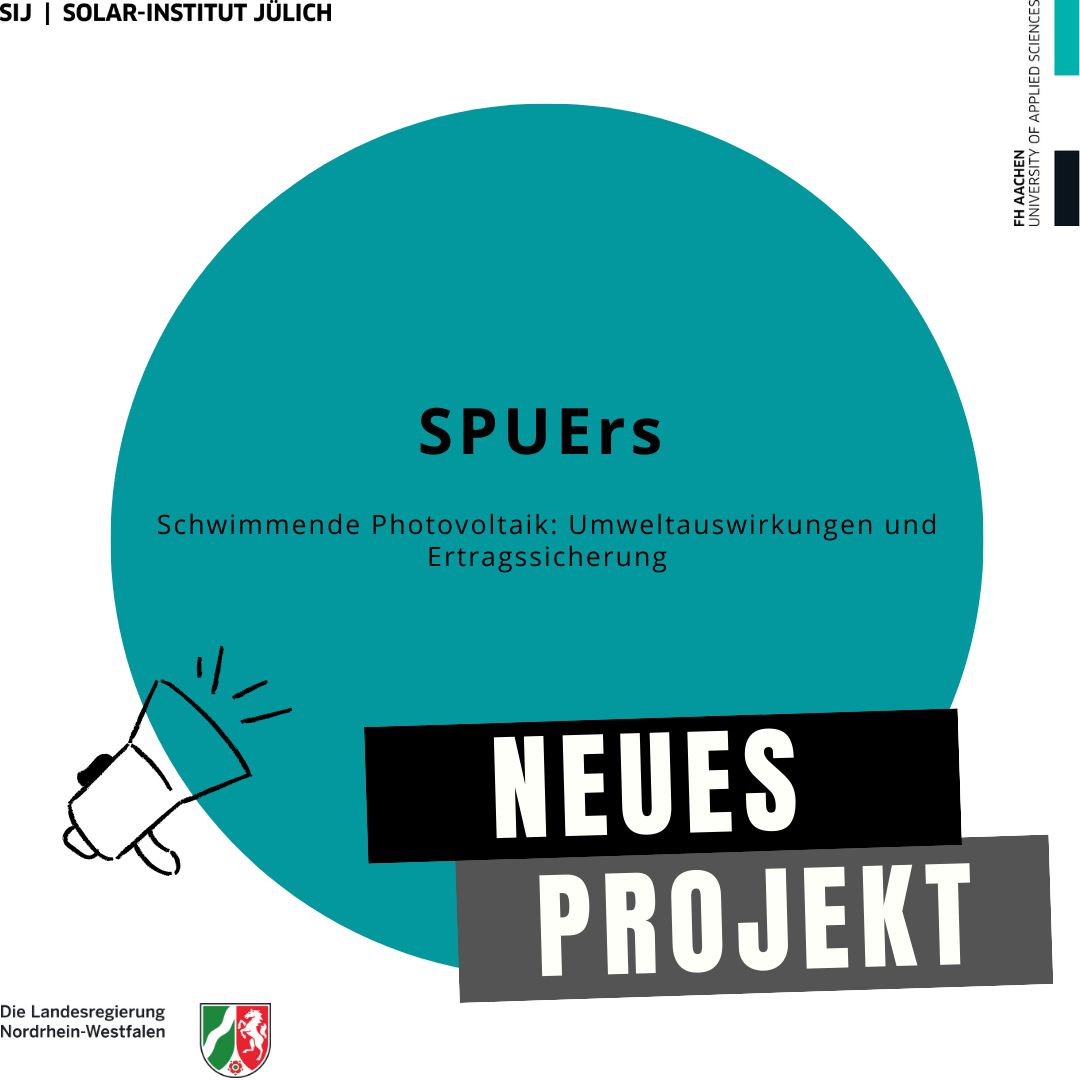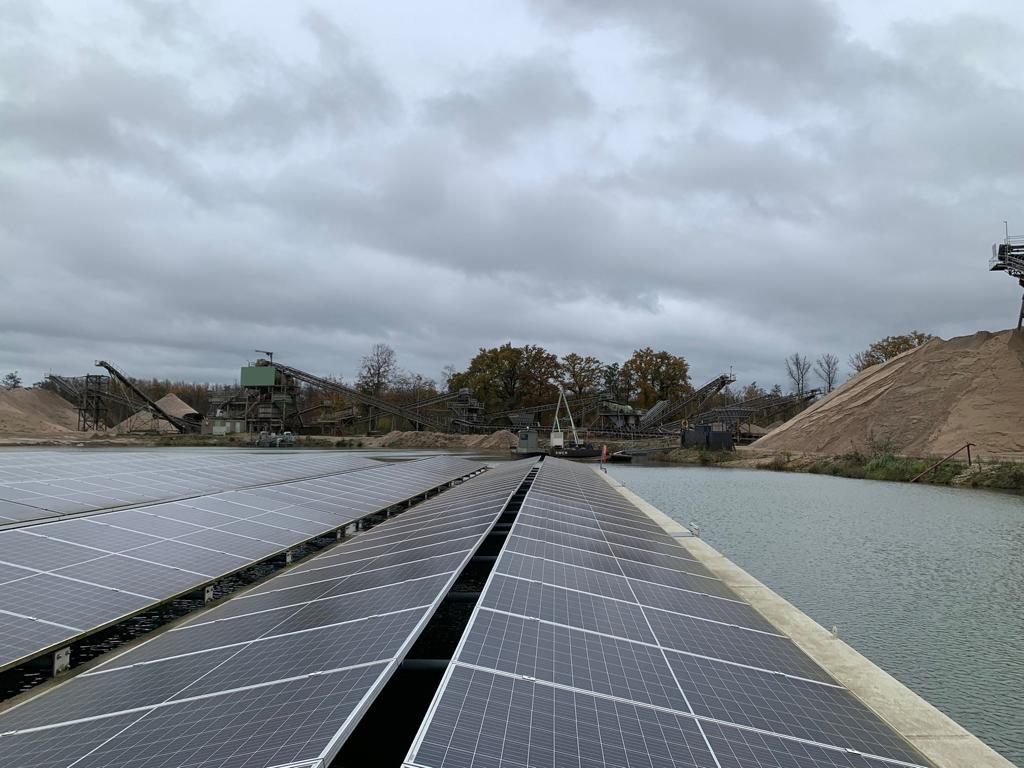Floating photovoltaic systems (FPV) offer great potential for the future regenerative (green) energy mix in Germany. The first systems have already been in use for years, mostly on artificial water bodiessuch as gravel pits. Nevertheless, there are gaps in knowledge and uncertainties regarding the effects on the environment, especially with regard to water ecology and with regard to impairments to technical functionality due to possible snow loads.
For this reason, the Solar Institute Jülich (SIJ), the Research Institute for Ecosystem Analysis and Assessment (gaiac) and the company HÜLSKENS (mineral raw material extraction through wet excavation, operation of a floating PV system since 2020) have joined forces to collect and evaluate scientifically sound data on the environmental impact of floating PV systems. The cooperation is planned for at least three years.
Data is collected in a practical setting at the site of a 750 KWp FPV system operated since 2020 on a gravel lake owned by HÜLSKENS in Weeze, North Rhine-Westphalia. In parallel, further questions are being addressed in tailored experiments in a model pond system. The effects of FPV systems on aquatic ecology are the subject of investigation. Building on this, our aim is to develop approaches for a general technical and ecological optimization of FPV systems. One aspect of this is the floating substructure. Experiments on cooling and cleaning and, in particular, on the safe reduction of snow loads on such systems will be carried out to develop optimal system operation.
The cooperation partners will use the opportunity to test innovative approaches to increase and secure the yield of floating PV. The data from the test facility and the monitoring will be incorporated into the dynamic lake model StoLaM developed by gaiac. This will be expanded as part of the aforementioned monitoring and calibrated with the data collected so that a validated forecasting tool for the general assessment of the environmental impact of floating PV systems will then be available.
In addition, life cycle assessments are being carried out on the floating platform with regard to an optimized solution approach. Finally, the existing system approach is to be tested and upgraded for use on large lakes, e.g. opencast mining lakes.
As far as we are aware, such a research project / monitoring process is currently unique in Germany. We expect reliable facts that can be used in future projects for the environmental impact assessment of the general use of floating photovoltaic systems for renewable energy generation.
Our project partners:
Solar Institute Jülich (FH Aachen)
Hülskens GmbH & Co. KG
Funding: State of NRW – Program for rational energy use, renewable energies and energy saving – progres.nrw – Innovation program area



